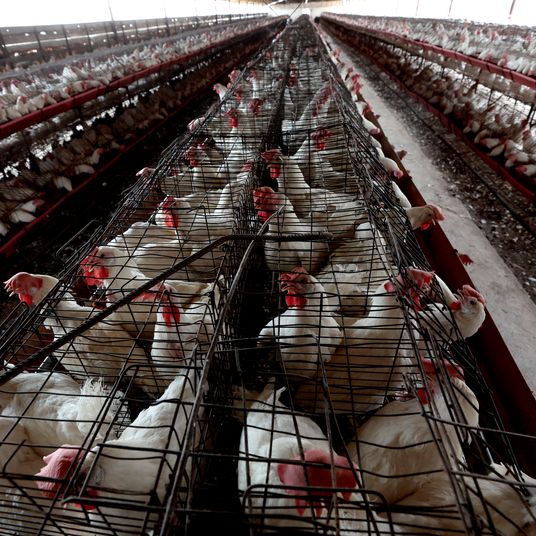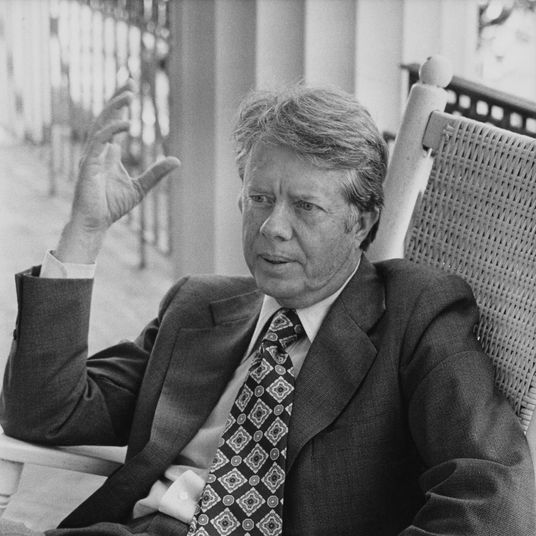Leading up to District Judge Vaughn Walker’s landmark ruling that struck down California’s Proposition 8, there was much legal speculation over what level of “scrutiny” he would use to review laws that are made based on a person’s sexual orientation, under the Equal Protection clause of the Constitution. (In the ruling, Walker proclaimed that Prop 8 was “unconstitutional under both the due process and equal protection clauses,” but let’s focus on the Equal Protection Clause for a second.*) This decision on his part would inform the way the rest of the case’s future is debated. So what does his 136-page decision mean, and where is it going from here? This requires a little bit of legalese, but bear with us for a second.
There are three types of scrutiny that judges can apply in Equal Protection cases when looking at laws that affect people based on various classifications, like gender, religion, race, and sexual orientation. Those are “rational basis review,” “intermediate scrutiny,” and “strict scrutiny.” Here’s a quick primer:
Rational Basis Review: On the most basic level, most government action has to be rationally related to a legitimate government purpose.
Intermediate Scrutiny: This is what judges use to look at legislation that, for example, treats people differently owing to their gender. It is basically one level higher and requires that laws be “substantially related” to an “important government interest.”
Strict Scrutiny: So far, the Supreme Court has been reluctant to apply this highest level of scrutiny to laws that deal with anything other than race or national origin. To pass this level of scrutiny, a law has to be of “compelling government interest” and the law has to be “narrowly tailored.”
Okay, got that? No? Well, we’re moving on. (Basically, the more protected a class of people, the higher the bar that must be passed in order to legislate about them.)
So far, gays have not been deemed a protected class by the court. The issue was addressed in a 1996 Supreme Court Case, Romer v. Evans, in which the state of Colorado attempted to pass a constitutional amendment barring any city, town, or county from making laws specifically protecting gays and lesbians. The Supreme Court struck that amendment down, and in a majority decision written by Justice Anthony Kennedy (more on him in a minute!) said the following:
Its sheer breadth is so discontinuous with the reasons offered for it that the amendment seems inexplicable by anything but animus toward the class that it affects; it lacks a rational relationship to legitimate state interests.
In this case, gays weren’t granted either intermediate or strict scrutiny — the decision was made based on a rational-basis review (though some people argue that because Kennedy looked for animus, it was something a bit higher than rational basis). Now, Judge Walker’s decision was interesting because he argued that gays should be granted strict scrutiny — that is, they should be given the highest level of protection against legislation. Here’s what he said:
The trial record shows that strict scrutiny is the appropriate standard of review to apply to legislative classifications based on sexual orientation. All classifications based on sexual orientation appear suspect, as the evidence shows that California would rarely, if ever, have a reason to categorize individuals based on their sexual orientation.
Walker argues that gays and lesbians are the “type of minority strict scrutiny was designed to protect,” that is, among other things, they have experienced a “history of purposeful unequal treatment.”
Now, Court watchers aren’t necessarily confident that five of the Big Nine will agree that gays deserve strict scrutiny. But Judge Walker argues that doesn’t even matter, because Proposition 8 doesn’t even pass rational-basis review!
As presently explained in detail, the Equal Protection Clause renders Proposition 8 unconstitutional under any standard of review. Accordingly, the court need not address the question whether laws classifying on the basis of sexual orientation should be subject to a heightened standard of review.
Walker’s decision contains a great factual rundown and extensive reasoning, setting up the case pretty much as best as he could for what happens next — it will be appealed to the 9th Circuit Court. The facts are important; though the appeals court can overturn his decision from the beginning, they cannot dispute the facts he presents unless they are clearly erroneous (which they aren’t). Eventually it will likely reach the Supreme Court, where many say the vote will hinge on swing justice Anthony Kennedy. Kennedy often votes with the conservatives, and has given no indication yet that gay people deserve a high level of scrutiny. But he did also write the opinion for Lawrence v. Texas — the most significant gay-rights victory in the Supreme Court to date, a case in which Scalia in a dissent called Kennedy out for setting the stage for gay marriage. And for what it’s worth, Kennedy also was a guest at Prop 8 foe Ted Olson’s most recent wedding — so it may be that lawyers on the side of gay rights think they know what he is thinking. But we’re getting ahead of ourselves. What happens from here? We’ll have another post shortly with a roundup of expert opinions.
Earlier Judge Hands Victory to Proposition 8 Opponents, Gay-Marriage Ban Overturned
Related: The experts weigh in!
(*Walker also based his Prop 8 ruling on the Due Process Clause, where what is at stake is whether the right affected is a “fundamental” right. His argument is that the plaintiffs are seeking access to the fundamental right of marriage and that strict scrutiny should be applied to any attempt to bar them from it. Opponents view that “gay marriage” is an entirely new right, not a fundamental one, and this is another issue that the Supreme Court will have to analyze.)





























